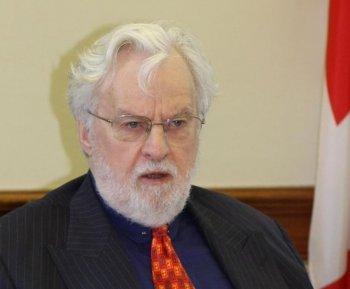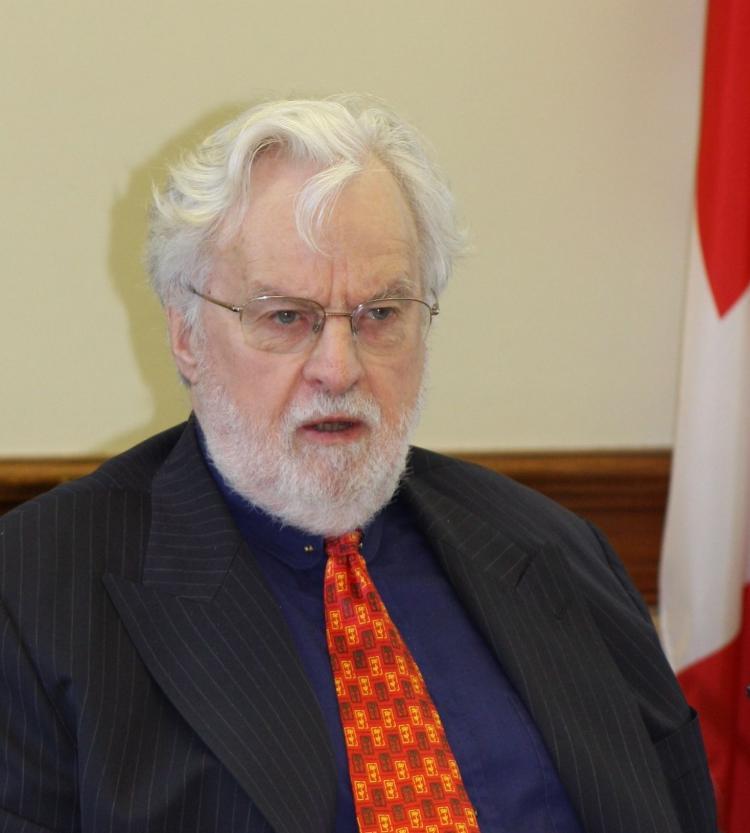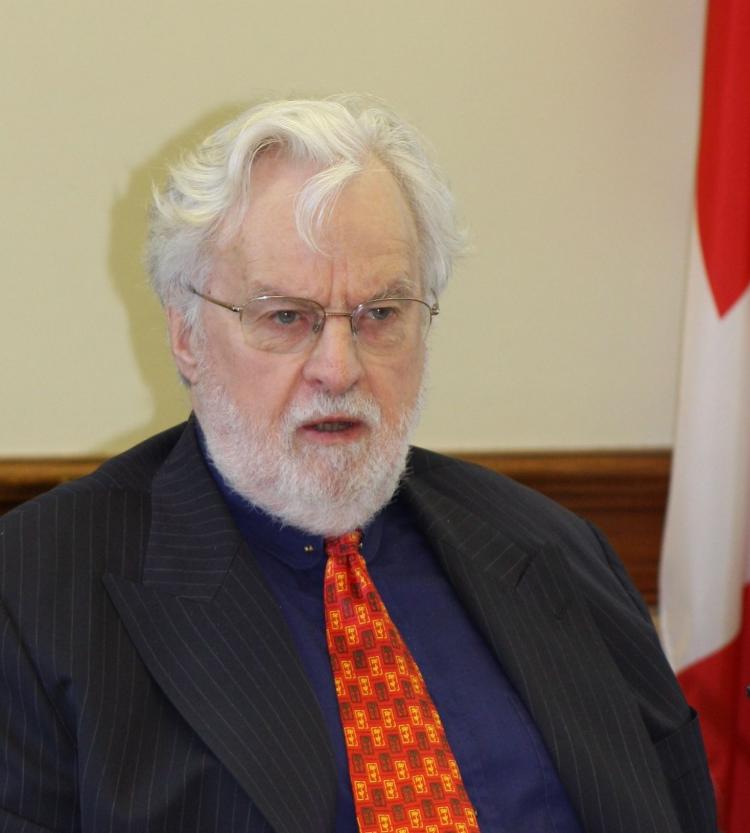PARLIAMENT HILL, Ottawa—He Lizhi was an engineer in China who was sent to jail in 2000 for three-and-a-half years just before emigrating to Canada because of letters he wrote to friends that were intercepted by the Chinese regime.
His letters contradicted the state line on Falun Gong, a meditation practice he says helped him recover his health.
“The practice was demonized day and night by the state propaganda media. ... I felt it my responsibility to tell my friends the truth before I left China.”
When he tried to hire a lawyer he found only one that was willing to take his case, but that didn’t last long. “On the second visit, this lawyer told my wife that his licence to practise law was revoked.”
Like many others, the lawyer was punished for his previous defense of another Falun Gong practitioner.
Mr. He shared his story at a lunch forum organized by Conservative MP Scott Reid (and supported by MPs from all parties) on Parliament Hill on Wednesday that analyzed the status of the Chinese judicial system.
Clive Ansley, one of the speakers to address the packed room, was among the first Canadians to practise law in China and represented foreign firms there for 14 years. He said the reports that come back from Canadian officials touring Chinese courts and declaring how far the Chinese judicial system has progressed are completely off-base.
He recounted the tale of a judge who visited China and came back to tell 300 trial lawyers that the Chinese judicial system was “so far ahead of us that we will never catch up” because the courthouse he visited was decked out in a mountain of marble and featured plasma televisions.
What the judge had failed to recognize, said Ansley, is that that in that courtroom decisions on cases are made by political authorities rather than judges, and that despite the reams of new laws being written by the Chinese Communist Party (CCP), no law stands above the regime or can be used to hold government authorities to account.
Ansley said anyone relying on these wined-and-dined “banquet visitors” for a fair appraisal of the Chinese judiciary will be ill-served because such people see the form of the courts but not the function.
“They are just totally and utterly divorced from reality,” he said.
A clear example, he added, can be found in the fact that China’s current chief justice does not have a law degree and has no legal training, but has risen to his position because he advocates a legal philosophy that directs the courts to first be loyal to the CCP, then to the Chinese people (according to what the Party says they need) and lastly, the law.
Lawyers who try to challenge the directives of the Party according to the law face imprisonment themselves, he said.
“Lawyers are being imprisoned today on totally bogus charges.”
Like the lawyer Mr. He tried to hire, lawyers in China are not supposed to represent anyone targeted by the regime, or bring cases that can embarrass authorities.
As the China monitor for Lawyers’ Rights Watch Canada, a group that advocates for lawyers and the rule of law by trying to protect lawyers, Ansley said he is flooded with appeals from Chinese lawyers facing severe punishments that can arise for anything from representing Christians to sticking up for farmers whose land was seized for development by local authorities.
“We are inundated with them, there isn’t a week that goes by that there isn’t another appeal,” he said.
His letters contradicted the state line on Falun Gong, a meditation practice he says helped him recover his health.
“The practice was demonized day and night by the state propaganda media. ... I felt it my responsibility to tell my friends the truth before I left China.”
When he tried to hire a lawyer he found only one that was willing to take his case, but that didn’t last long. “On the second visit, this lawyer told my wife that his licence to practise law was revoked.”
Like many others, the lawyer was punished for his previous defense of another Falun Gong practitioner.
Mr. He shared his story at a lunch forum organized by Conservative MP Scott Reid (and supported by MPs from all parties) on Parliament Hill on Wednesday that analyzed the status of the Chinese judicial system.
Clive Ansley, one of the speakers to address the packed room, was among the first Canadians to practise law in China and represented foreign firms there for 14 years. He said the reports that come back from Canadian officials touring Chinese courts and declaring how far the Chinese judicial system has progressed are completely off-base.
He recounted the tale of a judge who visited China and came back to tell 300 trial lawyers that the Chinese judicial system was “so far ahead of us that we will never catch up” because the courthouse he visited was decked out in a mountain of marble and featured plasma televisions.
What the judge had failed to recognize, said Ansley, is that that in that courtroom decisions on cases are made by political authorities rather than judges, and that despite the reams of new laws being written by the Chinese Communist Party (CCP), no law stands above the regime or can be used to hold government authorities to account.
Ansley said anyone relying on these wined-and-dined “banquet visitors” for a fair appraisal of the Chinese judiciary will be ill-served because such people see the form of the courts but not the function.
“They are just totally and utterly divorced from reality,” he said.
A clear example, he added, can be found in the fact that China’s current chief justice does not have a law degree and has no legal training, but has risen to his position because he advocates a legal philosophy that directs the courts to first be loyal to the CCP, then to the Chinese people (according to what the Party says they need) and lastly, the law.
Lawyers who try to challenge the directives of the Party according to the law face imprisonment themselves, he said.
“Lawyers are being imprisoned today on totally bogus charges.”
Like the lawyer Mr. He tried to hire, lawyers in China are not supposed to represent anyone targeted by the regime, or bring cases that can embarrass authorities.
As the China monitor for Lawyers’ Rights Watch Canada, a group that advocates for lawyers and the rule of law by trying to protect lawyers, Ansley said he is flooded with appeals from Chinese lawyers facing severe punishments that can arise for anything from representing Christians to sticking up for farmers whose land was seized for development by local authorities.
“We are inundated with them, there isn’t a week that goes by that there isn’t another appeal,” he said.







